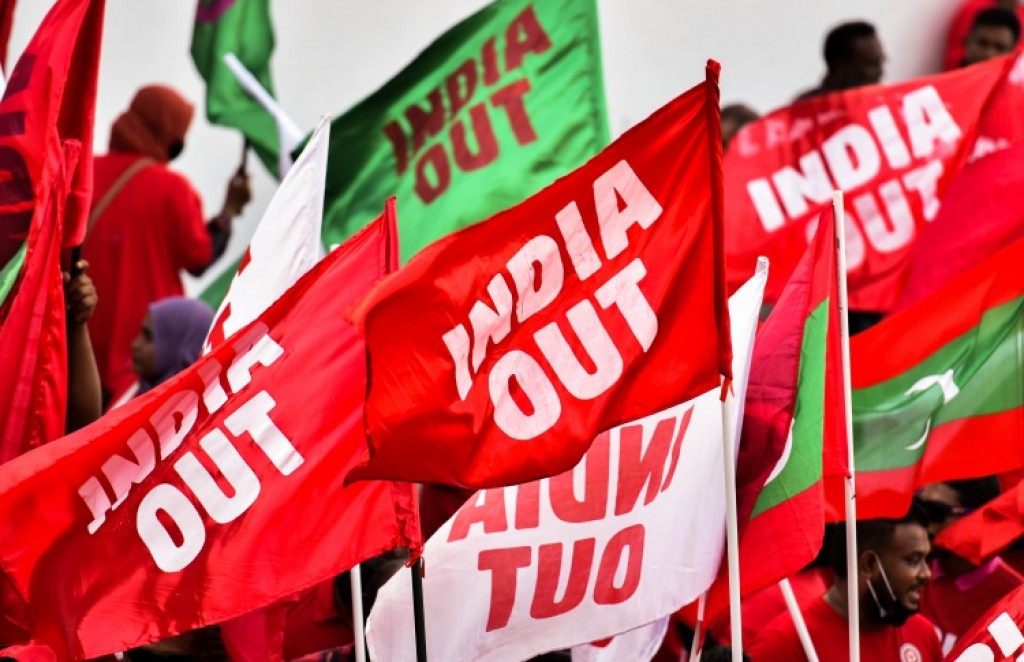- Web
- Feb 20, 2026
Will India-out campaign succeed in Bangladesh?
-

- Web Desk
- Apr 04, 2024

DHAKA: My question is, how many Indian sarees do their wives have? Why don’t they take these Indian sarees from their wives and burn them?’
This question has been asked by the Prime Minister of Bangladesh Sheikh Hasina Wajid in response to the demand of boycott of Indian products by some leaders of the opposition party Bangladesh National Party (BNP) in the country.
During a speech, Hasina, who enjoys good relations with New Delhi, said if the BNP leaders have truly boycotted Indian products, they will burn their wives’ Indian sarees.
“They must answer if they can eat without Indian spices. I want to know if they have truly boycotted Indian products,” Hasina said.
“The BNP leaders are advocating for boycotting Indian products. My question is – how many Indian sarees do the boycott campaigners’ wives possess? Why don’t they take the sarees from their wives and burn them?” she said.
She said that when the opposition party ‘BNP’ was in power, ministers of his government and their wives used to buy sarees during their visits to India and sell them in Bangladesh, this development is seen in the backdrop of the ‘India Out’ campaign.
Palestinians should seek statehood through direct talks, not at UN, US says
In Bangladesh, this campaign has been started by some influencers, social activists and influential personalities with the support of the public and a section of opposition politicians. The campaign has gained momentum after the Awami League’s recent victory in elections boycotted by the opposition ‘BNP’.
A video of the People’s Activists Coalition, which is running the campaign, was shared by a user on social media a few days ago, discussing the boycott of Indian
Earlier this year, a poster by one exiled blogger surfaced on X, saying “Boycott Indian products.” Since then, the campaign gained traction on social media.
The campaign was launched to oppose India’s alleged interference in Bangladesh’s internal politics.
t should be remembered that last year in another neighboring country of India, Muhammad Muizhu, who campaigned for the presidential election on the slogan of ‘India Out’, won the presidential election by defeating the so-called pro-India President Muhammad Saleh.
BANGLADESH CANNOT AFFORD TO BOYCOTT INDIA
Professor Sanjay said that if Indian products are boycotted in Bangladesh, the inflation will increase a lot, from kitchen spices to medicines, Bangladesh is dependent on India. Even onions, garlic, coconut oil, edible oil are all supplied to them from India. It is not just a matter of boycott of clothes to work, it is a matter of livelihood for them and they are very much dependent on India.’
According to Mr. Bhardwaj, although Bangladesh is among the fastest growing economies and there are infrastructure development projects and works in collaboration with China and Japan, everything from stone to gravel goes from India. Also, in today’s era when the economy is based on the market, ‘boycott’ has become a common thing.
He said that China is already involved in Bangladesh, but it will not work like in Maldives.
It should be noted that India and Bangladesh share a border of 4100 km and have deep historical, cultural and economic ties. Therefore, a stable, prosperous and friendly Bangladesh is in India’s interest.




